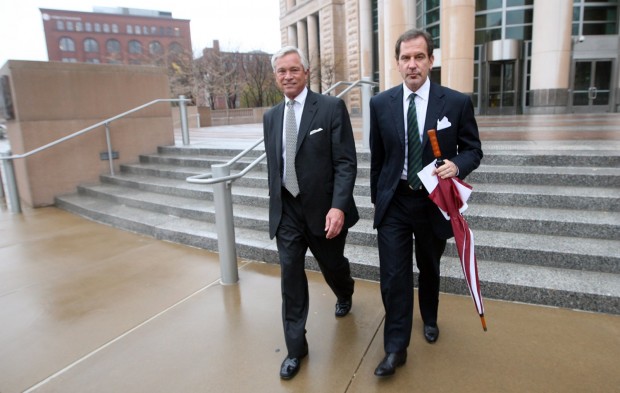The Worst Financial Scandal To Hit The U.S. Funeral Industry
The collapse of a St. Louis funeral business called National Prearranged Services might represent the worst financial scandal to hit the U.S. funeral industry, with claimed losses of $600 million.
From start to finish, it was a family affair, federal prosecutors and plaintiffs’ lawyers have said in court.
The enterprise’s driving force was James “Doug” Cassity, 67, a disbarred lawyer from Clayton, Mo. He is the patriarch of a family of funeral executives that includes his son Tyler Cassity, proprietor of the Hollywood Forever cemetery in Los Angeles and the Fernwood cemetery in Mill Valley, Calif.
Doug Cassity lost his law license after he pleaded guilty to investment fraud in 1982, according to court records. Paroled from federal prison after six months, he sold prepaid funerals – then an industry innovation.
For a fee that might top $10,000, customers were promised that when they died, all their funeral expenses – even graveside flowers – would be covered. The money was guaranteed to be safe, either held in trust or invested in life insurance.
Doug Cassity was a skillful marketer, and over the years, National Prearranged Services sold some 100,000 preneed funeral contracts, according to court records. Through a holding company called Forever Enterprises, the family acquired insurance companies, Midwestern cemeteries and funeral homes, and even a firm that imported caskets from China, according to court records.
Although Doug Cassity was the driving force, other family members played important roles in the enterprise, investigators later alleged. Cassity’s wife, Rhonda, was an officer for one of the family corporations. Son Brent was CEO of Forever Enterprises, and son Tyler served for a time as president. Rhonda, Brent and Tyler were beneficiaries of a family trust through which all the businesses were owned.
The family enjoyed its money, buying multimillion-dollar properties in Missouri; Florida; Nantucket, Mass.; and the Upper East Side of Manhattan in New York. They took yachting vacations in the Caribbean and went on extravagant shopping sprees, creditors complained.
But in 2007, state regulators moved in, followed by the FBI. Investigators said the Cassity businesses were insolvent, with $600 million in liabilities.
Millions had been lost to “wholesale looting,” the receiver who was appointed to oversee the Cassitys’ businesses later claimed in federal court. Millions more had been siphoned out of the trust accounts, the receiver said, and still more money had been skimmed from the life insurance companies through improper borrowing and forgery.
Some of the money had been spent to cover bad investments and pay millions in personal expenses for the Cassity family, the receiver claimed. Most of the losses never have been accounted for.
The losers included people who bought the funeral contracts, private funeral homes involved in the transactions and state insurance guarantee associations set up to bail out insurance companies that fail.
In 2009, the receiver sued Doug, Rhonda, Brent and Tyler Cassity and the businesses they operated, complaining of fraud and racketeering. Also targeted were banks where trust accounts had been maintained. The following year, Doug and Brent Cassity, along with four company insiders, were indicted on federal fraud charges in the scandal.
Tyler Cassity, who by then had lived in California for more than a decade, wasn’t named in the indictment. He is fighting the lawsuit, denying in legal filings that he did anything wrong. He didn’t respond to interview requests.
Joshua Slocum, executive director of the Funeral Consumers Alliance reform group, said the collapse of the Cassity businesses might be the worst event the funeral industry has seen in terms of financial losses. He called the Cassity businesses “a Ponzi scheme.”
In St. Louis, the criminal case has drawn to a close. Five defendants, including Doug and Brent Cassity, pleaded guilty to felonies, and a jury convicted a sixth after a trial. The Cassitys face sentencing in November.
The fraud lawsuit, which was delayed by the criminal case, still is pending.
[Via: http://cironline.org/reports/cassity-family-funeral-businesses-create-600-million-fraud-scheme-5393]




